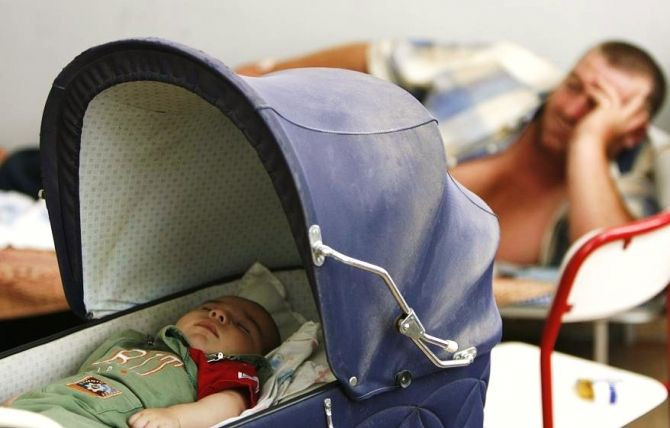Previous Parental Research Flawed, Parents Today Are Happier than Non-Parents

While previous studies have suggested that parents are unhappier, more depressed and have less-satisfying marriage than people without children, two recent studies are suggesting the opposite: that parents are happier than their childless counterparts.
The studies, presented at the Population Association of America's annual meeting that ended on Sunday, found that the earlier findings may have been flawed.
Researcher conducted newer analysis based on national data from around 120,000 adults from around the world from 1972 to 2008, which included more than 52,000 parents and found that parents today may actually be happier than non-parents.
The national study found that parents between the between 1995 and 2008 were actually happier than nonparents, compared to parents from 1985 to 1995 when they were unhappier than nonparents, according to co-author Chris Herbst of Arizona State University, who explained that happiness among childless individuals had declined, therefore making parents happier in comparison.
Herbst noted that while the evidence was unclear whether the average parent is currently less happy than their childless counterparts, it was "undeniable, however, is that parents have become relatively happier than non-parents over the past few decades," according to USA Today.
One of the two studies, based on longitudinal data from British and German parents, found that “the overall net effect of having children is positive," and while the levels of parental happiness tended to fall, happiness levels don’t drop below their own earlier levels before having children.
"We find no evidence that parental well-being decreases after a child is born to levels preceding the children, but we find strong evidence that well-being is elevated when people are planning and waiting for the child, and in the year when the child is born," according the study presented by co-author Mikko Myrskylä of the Max Planck Institute for Demographic Research in Rostock, Germany, USA Today reported.
Herbst also identified "serious problems with previous work that ought to make people skeptical about the earlier conclusions."
Researchers from both studies found problems with previous findings on parental happiness such as previous cross-sectional research methods that don’t account for individual personality differences and having results that were based on earlier data that could be different from the opinions of parents today.
European researchers also found that characteristics, like age, can make a significant difference in parental well-being. People who become parents at younger ages tend to have more of a downward happiness trend, while older parents tend to have a higher happiness level after birth, but researchers warned that the risk of involuntary childlessness increases with age.
"The results are not meant to encourage women to wait to very high ages to have a first birth," co-author Rachel Margolis of the University of Western Ontario in London, Ontario said, according to USA Today.
Happiness levels also change with each child, according to researchers who found that happiness levels increased by a great amount after the first child, only slightly when the second child is born and not at all after the third child.
Published by Medicaldaily.com



























